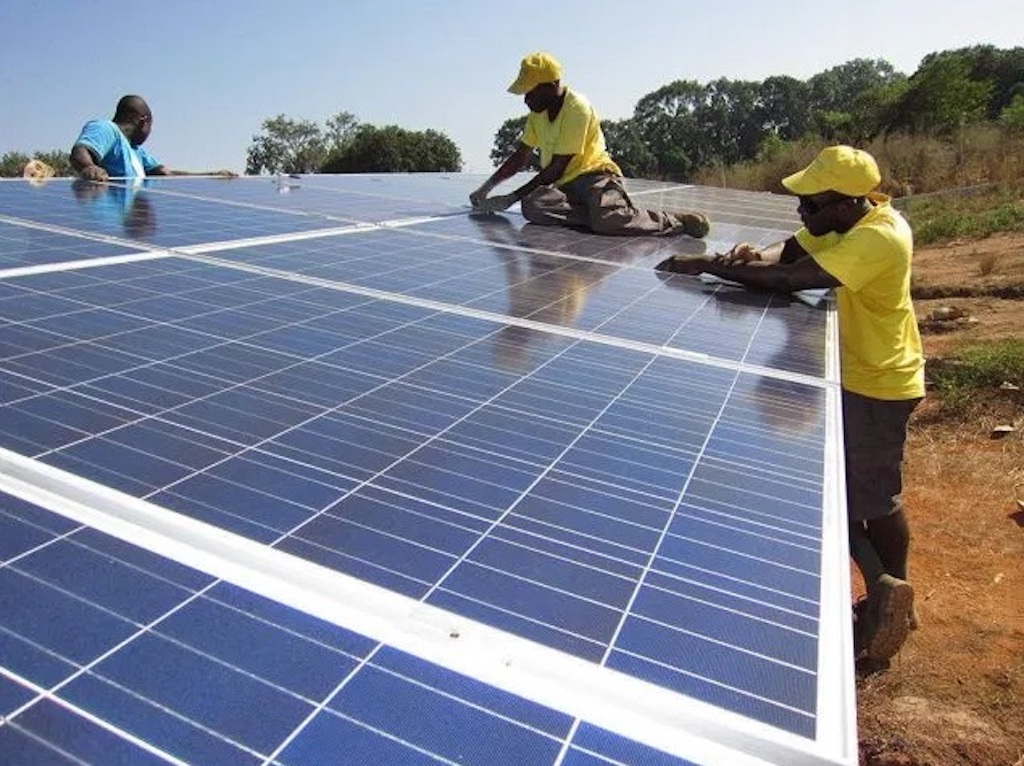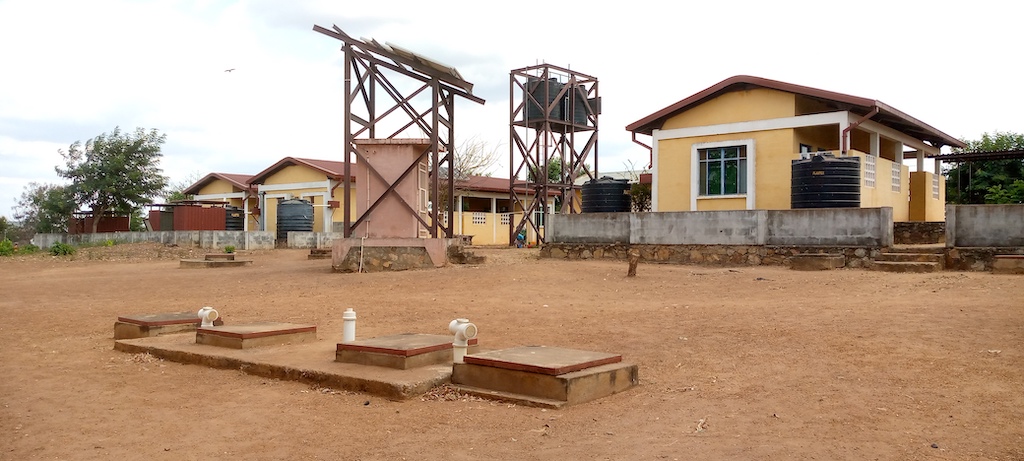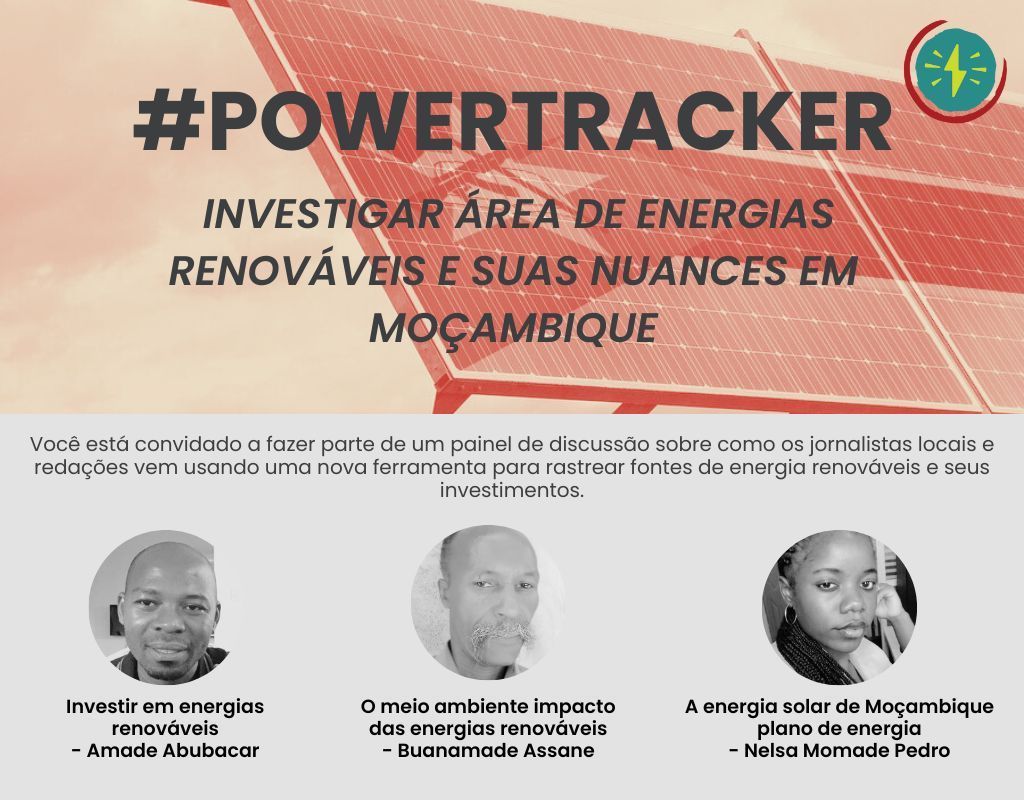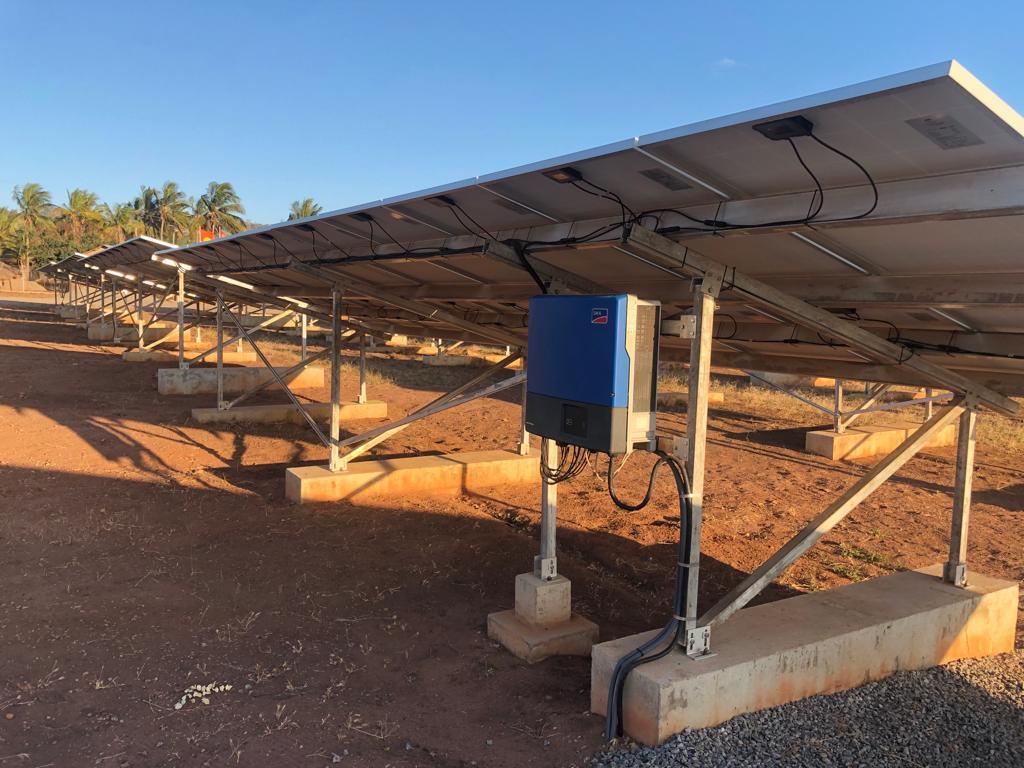
24 Nov What #PowerTracker journalists found in Mozambique
A six-month training and journalistic project has unravelled data and the human face of the renewals revolution, writes Estacio Valoi

Green energy: Central Solar de Mocuba was Mozambique’s first large-scale power plant, and provides more than 79GWh of electricity annually, equivalent to the electricity consumption of more than 170,000 households. Photo: Norfund
Three original and exclusive investigations tracking financial issues in the shift from fossil fuels to renewable energy in Mozambique found mixed progress in the northern provinces of the country.
The investigations, carried out by local journalists, are published in English on the Oxpeckers #PowerTracker page and in Portuguese by a variety of local media outfits. In partnership with the Open Climate Reporting Initiative, the Centro de Jornalismo Investigativo Mozambique and Moz24Horas, the project has supported journalists Nelsa Nomade Pedro, Amade Ababucar and Buanamade Assane to investigate green energy initiatives.
Our main objectives with #PowerTracker in Mozambique include monitoring financial flows in the generation of renewable energy, the use of solar panels and other forms of alternative energy, following the issue of fossil fuels versus green energy, and reporting on climate issues using data journalism resources.

Hope for healthcare: Hospitals in Nampula, including the Muite health centre (above), have been able to provide for emergencies due to the installation of solar panels. Photo: Nelsa Momade Pedro
Financing sources
Investment in renewable energy in the three provinces investigated – Cabo Delgado, Nampula and Niassa – involves a diverse set of financing sources, including government subsidies, private investments, international aid and loans from financial institutions such as the Banco Comercial Internacional (BCI) in partnership with the National Energy Fund (FUNAE), a government institution.
We discovered that FUNAE does not have money to spend on projects itself, but offers a line of financing with the BCI bank for companies and interested entrepreneurs. Its Nampula representative said these transactions are managed by the central government in Maputo, and at provincial level FUNAE only has the duty to welcome companies and respond to their concerns.
Promised investments in the northern region include millions of dollars from the World Bank, European Union, African Bank and other partners. Most of the renewable energy projects that FUNAE implements are projects financed by cooperation partners, many of which are from the European community.
These partners are directly supporting the projects in terms of the electrification strategy shared between the Mozambican Electricity Company (EDM) and FUNAE. Our investigations show that since 2018 the funds allocated to the various administrative posts in the north are valued at a total of 60-million meticais (around US$940,000), although the local FUNAE representative was unable to say how much has actually been received from the promised investments and whom they have benefited.

Data journalism training: Over the course of six months, #PowerTracker has trained journalists from Mozambique, Angola and other parts of Southern Africa on how to integrate data into their investigations. Photo: #PowerTracker
Training sessions
These data-driven investigations were the outcome of two in-depth virtual training sessions for Mozambican journalists, expanding the Oxpeckers Community of Practice to the Lusophone country. The data sets collated during the project are shared on our Get the Data section, and the lessons learnt and presentations from experts are shared on our Learning Kit.
The programme is facilitated by Estacio Valoi, a Mozambique-based Oxpeckers associate and winner of the 2023 Swedish Pen2Pen-Örebro Freedom of Expression Award.
A group of Angolan journalists joined one of our training sessions, further expanding the #PowerTracker Southern African Community of Practice and helping them to better understand and report on climate change and renewable energy.
Our training on data journalism, where numbers are represented by the human face, helps journalists to uncover what the millions of dollars invested in the renewables revolution actually mean in terms of socioeconomic development, where these projects were and/or are implemented, and how to understand and follow financial flows.
The Mozambican project is part of the #PowerTracker professional support and training project, launched in 2022 under the rubric “Green for good – or greed?” It is a climate crisis programme developed by Oxpeckers Investigative Environmental Journalism that aims to investigate who is financing renewable energy initiatives in Southern Africa, and how the money is being spent.
The first iteration of the programme was a nine-month project, in collaboration with the Centre for Investigative Journalism’s Open Climate Reporting Initiative (OCRI). Journalists based in Botswana, Eswatini, Lesotho, South Africa and Zimbabwe collected and analysed information on close to 200 renewable energy projects in the region, culminating in a series of data-driven investigations into the financing and feasibility of green projects.
Their investigations are featured by Oxpeckers here, and have been published by various other media outlets across the region. (See Journalists liberate new #PowerTracker data to follow energy investments.)

Mini-grids: Mozambique’s National Energy Fund has been facilitating the development of mini-grids across the country. Photo: Buanamade Assane
Environmental problems
Our investigations in Mozambique found that in some districts in northern parts of the country, even though solar energy has improved the lives of some people, some solar panels have been counterproductive and caused environmental problems for local residents. In some regions the cost of energy has not decreased, but shows signs of increasing.
Due to the limited electricity available on the public grid in the north, private companies are intervening to provide services, often at a cost to poor populations living in rural areas.
Our data shows that although FUNAE has been Mozambique’s implementing agency for off-grid matters and rural electrification since 1997, it has only managed to electrify 580 schools and 561 health centres in 260 communities across the country.
Critical voices say that the overseas investments do not benefit Mozambicans because they increase the public debt, in the form of loans and not donations or grants.
There is much journalistic digging still to be done. #PowerTracker and its partners in Mozambique plan to continue doing this in 2024. You can follow #PowerTracker news here, and investigations here. Data sets shared during our investigations are available here, as well as on our pioneering #PowerTracker tool. You can keep an eye on our training programmes here, and on the Oxpeckers YouTube channel here.
